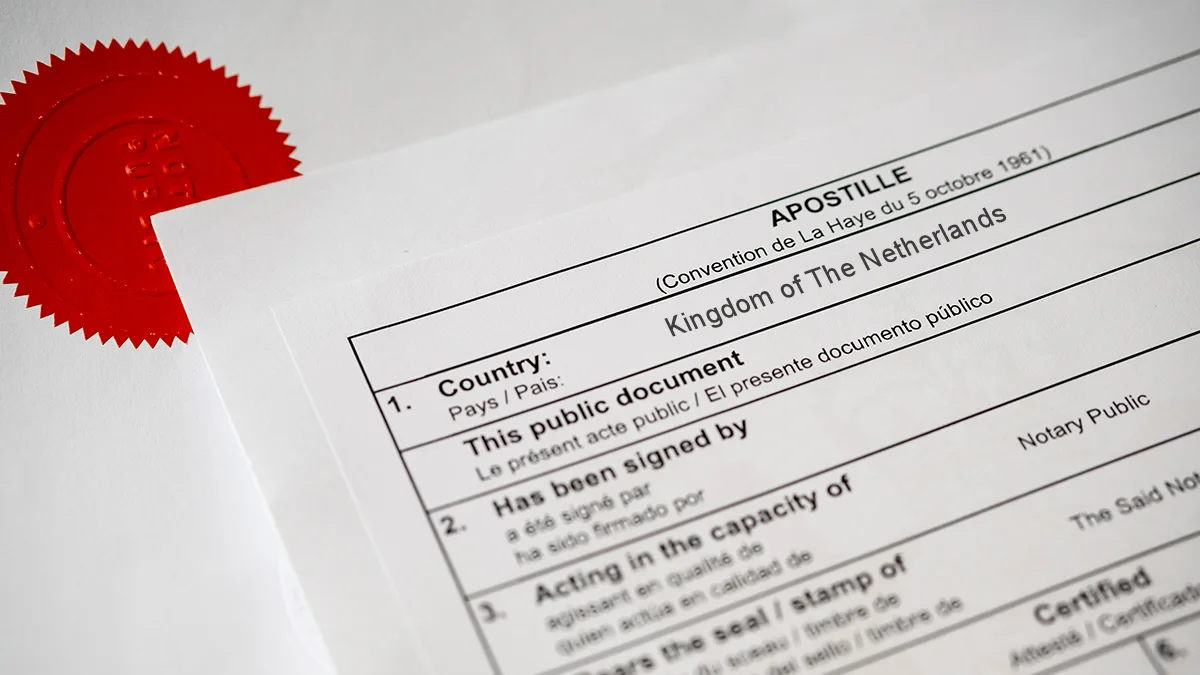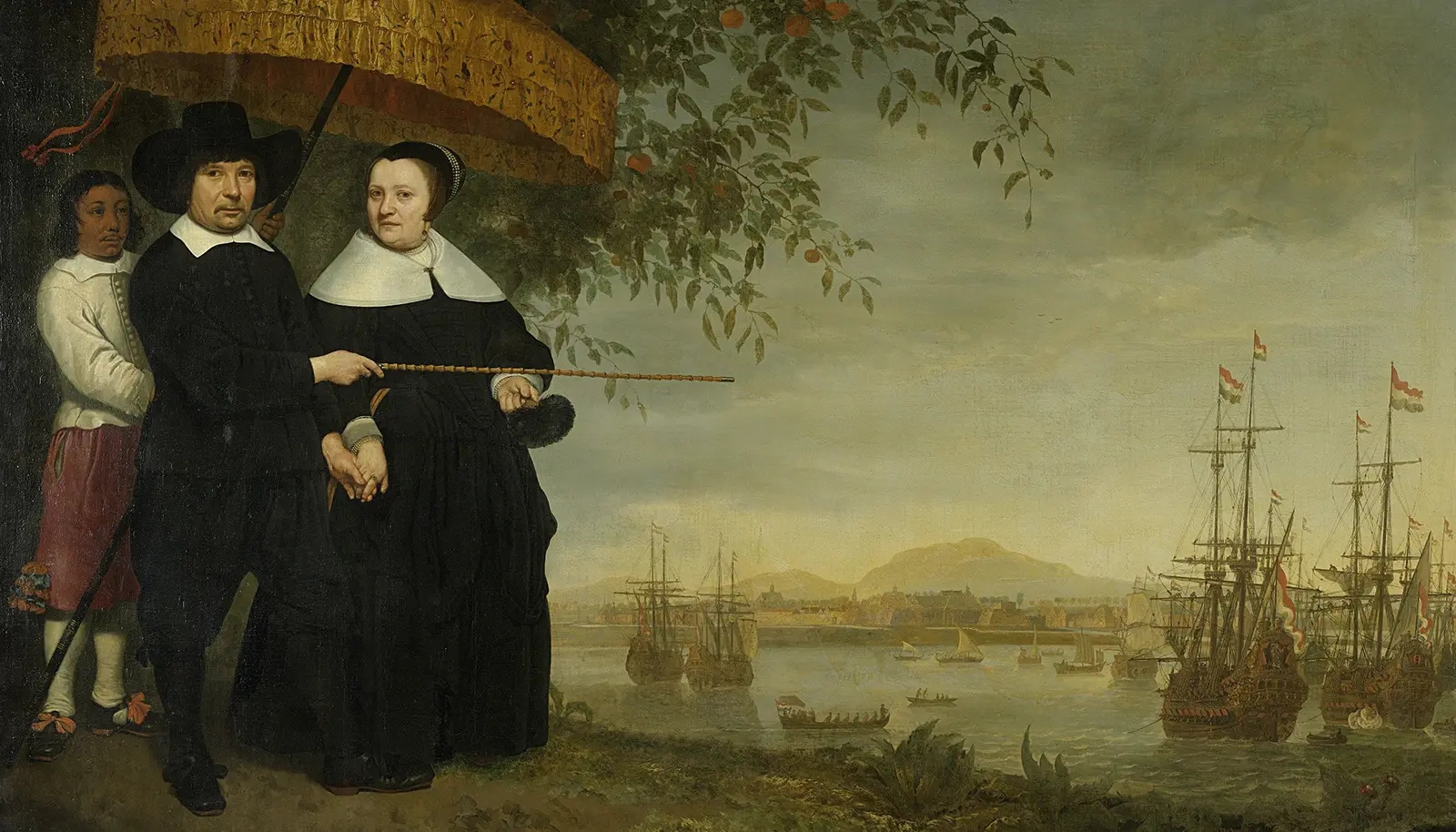
Legalization in the Netherlands is a vital procedure that ensures that official documents obtained from one country are recognized as valid in another. It’s vital for citizens and businesses transacting in international business since it verifies the authenticity of documents for legal, administrative, or business purposes. The process of legalization varies depending on what kind of document it is and requirements for that nation of destination.
Types of Legalization
One of the primary methods of document legalization is the Apostille, an efficient certification established by the Hague Convention of 1961. It can be applied to documents aimed at use within member states of the Convention. The Apostille stamp guarantees that the signature, the authority of the official whose signature appears on the document, and the name of the seal or stamp upon which it appears are genuine. This method greatly minimizes bureaucracy by cutting out the additional certification by the destination country’s consulate, thus speeding up document recognition abroad.
For those nations that do not belong to the Hague Convention, a longer process known as Consular Legalization is required. It is a multi-step procedure that starts with certification by the Dutch Ministry of Foreign Affairs. Once verified at first instance, the documents then must be submitted to the consulate or embassy of the destination country for final approval. Every step guarantees that the document meets the receiving country’s legal requirements, and the process is longer and more comprehensive than the Apostille process.
In some instances, documents require Notarial Certification prior to proceeding with either Apostille or consular legalization. This process is necessary for documents including powers of attorney, commercial contracts, and other legal documentation since it verifies the legitimacy and proper signing of these documents. Notarial certification adds an extra layer of confirmation that the document is binding under the law before further action.
Key Steps in the Legalization Process
There are numerous important milestones in the Netherlands’ legalisation process. The first phase involves Verification of Documents, verifying that the documents are either original or certified copies is the first step in the process. Before moving on to the next phase, many papers must be notarised. If the document is meant for a nation covered by the Hague Convention, the next step is obtaining an Apostille, which is granted by the Dutch District Court (Rechtbank). This is a simple process that usually takes a few days. Consular legalisation is required, nevertheless, if the document is intended for a nation that is not party to the Hague Convention. This entails submitting to the Ministry of Foreign Affairs for preliminary certification, after which the appropriate consulate or embassy must approve it. Every stage guarantees that the document satisfies the target nation’s legal requirements.
Commonly Legalized Documents
Documents are legalized to make them acceptable in foreign countries. Various types of documents require legalization depending on their use and the regulations of the destination country.
Personal documents are often required for legal and administrative processes abroad. They include birth certificates, marriage certificates, divorce decrees, and death certificates. These documents are especially required in immigration, marriage, and inheritance cases since they are used as official proof of identity, marital status, or familial relationships. Legalization of these documents ensures their authenticity and acceptance by foreign governments.
Education documents are yet another document that is routinely legalized. Diplomas, academic transcripts, and professional diplomas are usually required to be legalized for individuals who wish to work, study further, or obtain professional accreditation in a foreign country. Employers and universities mostly require the official verification of academic credentials to ascertain that they are genuine. Legalization makes these documents meet the desired standards and be acceptable internationally.
Business and commercial documents also require legalization for global transactions and legal adherence. Documents such as powers of attorney, articles of incorporation, and agreements must be authenticated to verify their validity in other countries. Legalization of these documents is required for businesses that engage in global trade, company expansion, or legal cases abroad. This process ensures that all business documents and contracts adhere to the legal frameworks of different countries, providing security and validity for cross-border transactions. Overall, legalization of documents is the minimum requirement for their acceptability and validity outside the Netherlands. For any purpose whatsoever, be it personal, educational, or business, legalization in a correct manner guarantees conformity with international standards and smoother interactions across borders.
Authorities Involved in Legalization
Certain authorities are in charge of overseeing the legalisation process in the Netherlands, and they are all in charge of confirming and certifying papers to guarantee their acceptance elsewhere.
By providing an apostille for papers meant for nations covered by the Hague Convention, the District Court (Rechtbank) plays a vital part in this procedure. The court confirms the document’s legitimacy, including signatures and governmental seals, before attaching the Apostille stamp. This guarantees that the document satisfies the legal requirements for usage across borders.
The Ministry of Foreign Affairs is in charge of overseeing the consular legalisation procedure for papers that need it. Before papers are delivered to the consulate of the country of destination, this body makes sure they meet international standards. The ministry makes it easier for nations who do not recognise apostille to recognise papers by confirming their legitimacy.
Notaries are also involved in document certification and verification prior to further legalisation. Since notarial certification attests to the legitimacy and correct execution of specific legal papers, their function is very crucial.
When submitting documents for legalization, individuals must make sure they provide original or certified copies of their papers for legalisation, give proof of identity or an authorization letter if they are operating on behalf of someone else, and pay all necessary costs in advance. These actions contribute to the acceptance of papers for official usage overseas and a seamless legalisation procedure.
Timeframes and Costs in the Netherlands
The Netherlands’ legalisation process and expenses vary depending on the country of destination and the technique used.
The quickest option is Apostille certification, which is provided by the District Court (Rechtbank) and usually finished in one to two business days. It is an affordable option because it is recognised in Hague Convention countries without further certification.
Consular Legalisation is necessary for non-Hague Convention countries. This entails clearance from the embassy or consulate of the destination nation after confirmation by the Ministry of Foreign Affairs. Depending on the particular needs, processing may take a few days to weeks.
While consular legalisation is more expensive since it requires many certification processes, various steps to be taken and embassy fees, apostille services are often less expensive. Notarisation and translation may incur additional costs.
Benefits of Professional Legalization Services
Many people and organisations decide to employ professional legalisation services in order to effectively manage the requirements due to the intricacy of the legalisation procedure. By guaranteeing adherence to legal requirements, these services reduce the possibility of document delays or rejection. Professional services also improve efficiency by accurately compiling and submitting paperwork, preventing needless delays. Additional services including document translation, notarial certification, and help with submissions to the appropriate authorities are also provided by several suppliers.
Conclusion
One of the most important steps in guaranteeing the international validity of official documents in the Netherlands is document legalisation. Legalisation ensures adherence to international legal obligations, whether for private, academic, or professional reasons. The procedure differs depending on the country of destination: for nations covered by the Hague Convention, Apostille certification offers a speedy option, while Consular Legalisation is necessary for other countries. To ensure legitimacy and global acceptance, the procedure is supervised by important institutions such as the District Court, the Ministry of Foreign Affairs, and notaries. Professional services provide invaluable assistance due to the complexity of legalisation, guaranteeing effectiveness, adherence, and seamless cross-border transactions.






